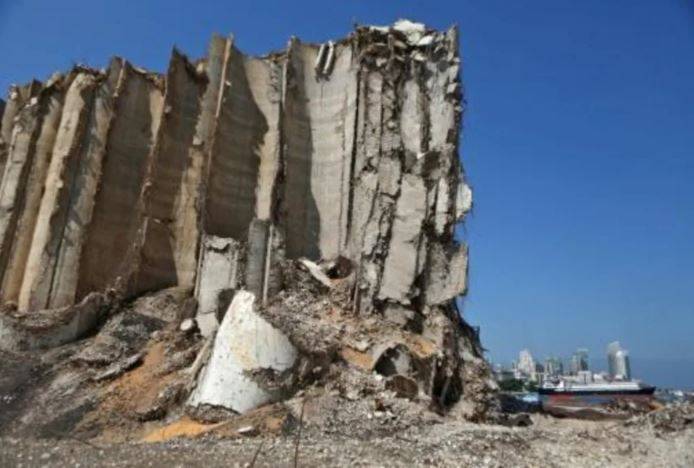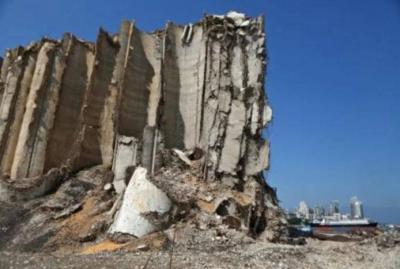A French private company intends to recycle tons of grain left in the silos at the Port of Beirut since the explosion on August 4, which caused parts of the silos to crack, aiming to turn it into agricultural fertilizer, according to an official from the organization on Tuesday. After receiving funding from the French government amounting to 1.3 million euros, the company "Recygroup" will begin the recycling process within a week in cooperation with the Lebanese company Mondis, at a time when Lebanese authorities are still unable to deal with the aftermath of the explosion both inside and outside the port.
The co-founder of the French company, Christophe Duboeuf, told AFP from the port, "We expect to find a quantity of grain ranging between 20,000 and 30,000 tons, and we believe we can process it within three to four months." About a year ago, an explosion within the Port of Beirut, which authorities attributed to the storage of large amounts of ammonium nitrate in one of the warehouses without safety measures, resulted in the deaths of more than 200 people and injured over 6,500. It also led to the destruction of several neighborhoods in the capital and caused severe damage to the wheat silos, which stand 48 meters tall and have a storage capacity exceeding 100,000 tons.
According to the French official, half of the existing grain, which has mixed with debris and metals, will undergo a sorting process using an industrial sieve placed near the silos, in an effort to give it a "second life." The company intends, according to Duboeuf, to convert the grain into "fertilizer that can be reused in agriculture," either as soil or used as a flooring material in gardens or as insulating material.
The port’s yards near the explosion site still resemble a war zone, while foul odors emanate from the cracked silos where visible mounds of grain are intertwined with rubble. Near dock number 9, two sunken ships from the horrific explosion can be seen.
Lebanon is facing an economic collapse, which the World Bank has suggested may be among the three worst crises globally since 1850. The competing political factions have failed to form a government for 11 months, a government that the international community insists must implement radical reforms to provide financial support to the country.
Despite Lebanon previously announcing a plan to demolish the precarious silos, and a report published by a Swiss company in April warning that the silos "tilt by 2 mm daily," no practical steps have been taken yet.
French Minister of Foreign Trade Franck Riester called on Lebanese officials on Tuesday from Beirut to "take responsibility," criticizing the delay in the formation of a government that implements structural reforms. During a tour of the port, he stated, "For the port, for example, tenders must be launched so that the container terminal can benefit from major works," noting that "only five out of a total of 16 cranes are currently in service."
Riester announced that the port has benefited from grants totaling four million euros provided by his country, which is leading international pressure on political leaders. Following the European Union’s announcement of its plan to impose sanctions on political officials who hinder government formation by the end of this month, Riester mentioned "asset freezes" that would serve as a "wake-up call" that things cannot continue this way in Lebanon.




